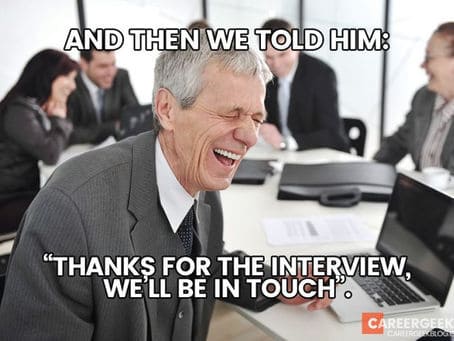As a contributing member to society, I have interviewed for many different jobs myself. As an executive, leadership, and career coach, in addition to my work in Human Resources, I have worked with thousands of job seekers preparing for interviews. In both instances, the topic of effective interview techniques is a constant, as is the associated emotions I’ve noticed both within myself and the folks I work with: concern, stress, uncertainty, and general frustration. There’s also a wealth of questions that accompany those emotions:
· How can I best prepare for an interview?
· How can I anticipate what they’re going to ask?
· What’s the ‘right’ way to interview?
· Should I take notes?
Let me put you at ease right now. There’s no “right” way to prepare or interview, but there are definitely things you can do to set yourself apart. Throughout my corporate career, I dabbled in both Human Resources and Talent Acquisition (a fancy way of saying “recruiting”), and in all my years conducting prescreens with candidates, partnering with hiring managers, creating selection criteria, and hiring people into jobs, I’ve come to realize that interviews generally focus on three main factors: personality, behavior, and capability.
Being mindful of these three points are paramount to a successful interview, so let’s delve further into how these three main points can land you your dream job.
Personality
Personality matters! I know it’s taboo to say this in the Human Resource circles, but it’s true. Luckily, I can give you the insider’s scoop on what’s said and done behind the scenes of an interview. How many of you have heard “it’s just not a fit?” or “you’re not a cultural fit?” That’s code for “I don’t like you enough.” I know that’s not an easy message to hear because personality is personal – it’s who you are! At work though, the bottom line is that we want to work with people we like. The interview is the opportunity for both sides to evaluate each other and determine if they ‘like’ each other.
Now for you as the candidate, trying to be what you think your potential employer wants you to be is not the correct course to take – it’s inauthentic. Whether they see through that now or after you’re hired, it’s a recipe for disaster. My mother gave me a Snoopy plaque for Christmas once that read, “be yourself, everyone else is taken.” Well Snoopy, no truer words could be spoken for interviews and life in general. Just be you. Show up in all your glory, be you, and let them decide if they like you. If they do, great! If not, you probably wouldn’t like them in the long run, anyway. Remember, an interview is always a two-way street: they have to like you and you have to like them to really find a successful work relationship.
Behavior
Behavioral interviewing is a real thing and it’s based on the belief that the past is a clear indicator of the future. Examples of this are reviewing past performance, behavior while on the job, and approaches to problem-solving. They are indicators of how you’ll perform, behave, and solve problems in the future. If you’re not familiar with the acronym STAR (or PAR or CAR), read up because these acronyms provide a framework for how to respond to behavioral interview questions in the most effective way without rambling and providing inarticulate and/or unconcise answers.
It goes without saying that these days you must be able to answer why you’re looking for a job, why you’re interested in their position, and the always dreaded prompt to identify your greatest strengths and weaknesses.
Your preparation lies in your experience and your stories. You have to be able to effectively convey how well you behaved in past experiences and tell a compelling story at the same time. Think of your favorite project, a time you exceeded your own expectations, a time you fell short of your expectations or missed a deadline, the most difficult person you’ve interacted with (which is a nod to your ability to resolve interpersonal conflict), and a time you learned something new in the workforce. What did you do well? What would you go back and change if you could? What did you learn from the experience, good, bad, or otherwise? Have five well-rounded stories prepared before an interview, that way you won’t be caught off guard when you’re asked to give some concrete examples of how you’ve handled situations in the past.
Capabilities
Putting it simply, capabilities are your skills and knowledge. It’s what you have done in the past, extrapolated out to what you can do in the future. As you tell your stories, let your personality shine! This is who you are! Your behavior will be at the forefront, and your capabilities will be showcased as you explain what you’ve done to handle a given scenario. Think about it: when you tell the story of your favorite project, your natural enthusiasm and pride will be on full display. How you approached that project showcases your behavior. The results you achieved tells the interviewer how your capabilities were utilized and highlighted your greatness.
Now, Go Land Your Dream Job!
The next time you prepare for an interview, try channeling the classic Saturday Night Live character, Stuart Smalley and his tried-and-true tagline, “I’m good enough, I’m smart enough, and doggone it, people like me!” Remember, if that company or interviewer does not find you to be the right fit, your personality, behavior, and capabilities will be appreciated by someone else. Remember these three main attributes and you’ll write your next interview success story.
Now, go land your dream job! For additional guidance, check out The Kanthal Group. We will help you step by step to both find the right mindset and also utilize you the tools you need to be successful.


